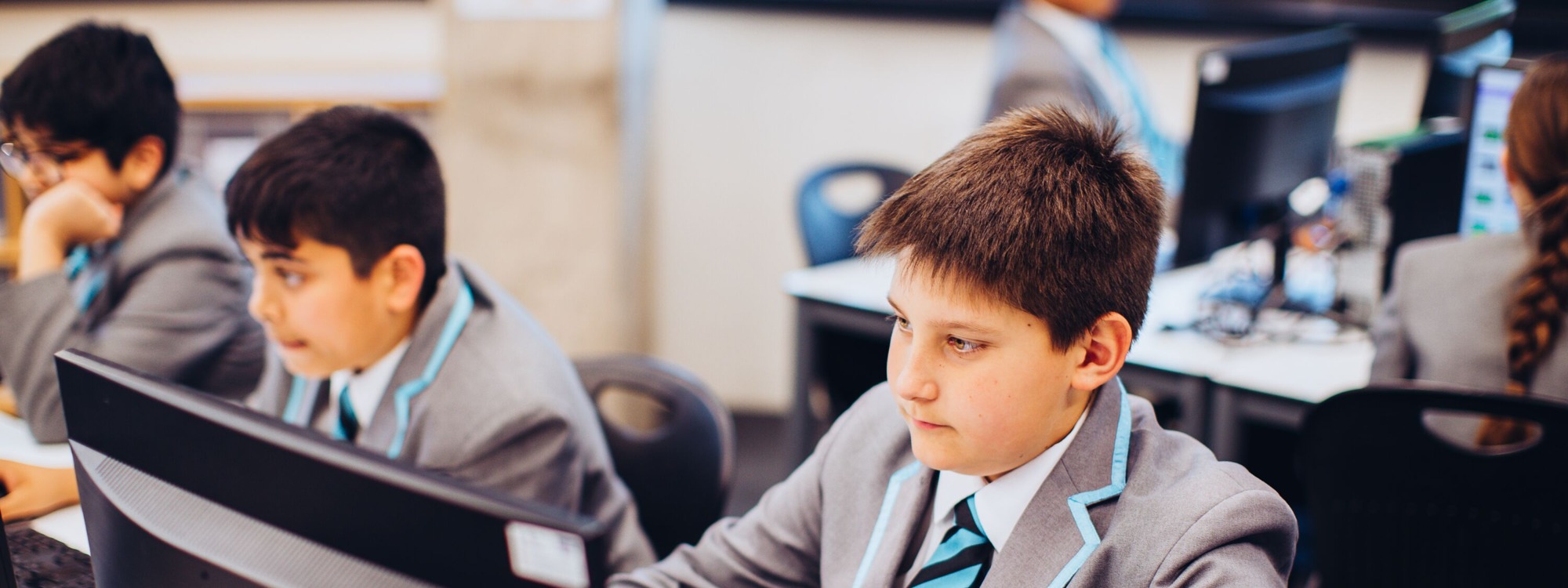- Home
- Parents & Carers
- Online Safety
Online Safety
What measures are taken at The Academy to promote E-Safety?
As part of your child’s curriculum and the development of computing and research skills, we provide access to the internet in supervised lessons. We strongly believe that the use of the internet and email is hugely worthwhile and an essential tool for children as they grow up in the modern world. As we know there are many concerns about children having access to undesirable materials, we have taken positive steps to deal with this risk across The Trust. Our internet access includes a robust filtering system that restricts access to inappropriate materials.
More importantly, lessons and class discussions help children learn how to stay safe online by recognising some of the dangers they may face on the internet. We base our practice on Childnet’s SMART principles:
Childnet Smart Rules Poster A3
Teachers constantly reinforce the need for children to stay vigilant. We also participate in the annual Safer Internet Day, held each February.
What can parents/carers do at home to promote E-safety?
Many children are making an increased use of technology at home and we recognise that as parents/carers you will have some concerns about the risks children may face, such as bullying, contact from strangers or the possibility of them seeing illegal or inappropriate content. Advice from Childnet encourages parents/carers to discuss online activities with the children. Topics such as:
- Ask your children to tell you about the sites they like to visit and what they enjoy doing online.
- Ask them about how they stay safe online. What tips do they have for you, and where did they learn them? What is OK and not OK to share?
- Ask them if they know where to go for help, where to find the safety advice, privacy settings and how to report or block on the services they use.
- Encourage them to help. Perhaps they can show you how to do something better online or they might have a friend who would benefit from their help and support.
- Think about how you use the internet as a family. What could you do to get more out of the internet together and further enjoy your lives online
Being online is an integral part of children’s education in today’s digital world. Social media, online games, websites and apps can be accessed through mobile phones, computers, laptops, tablets and gaming machines – all of which many children have access too.
We recognise that the internet and online technology provides many new opportunities for children’s learning and growth, but it can also expose them to new types of risks.
E-safety is a key part of The Langley Academy's safeguarding and child protection measures.
How can I keep my child safe if they have a smart phone?
90% of under 16s have a mobile phone. The following website may offer valuable tips to help you teach your child to be safe with their phone.
Tiger Mobiles - how to protect your children on their smartphone
Other support is available from:
CEOP – Child Exploitation and Online Protection Command. A national police organisation, able to offer support and investigate online abuse. The logo is seen on a number of websites
Think u know – Linked to CEOP, they provide training materials for parents/carers and children. Resources are adapted for different ages.
Childnet – A charity to promote a safer internet
NSPCC – The online safety section, provides support and materials for parents/carers to talk to their children about online safety


